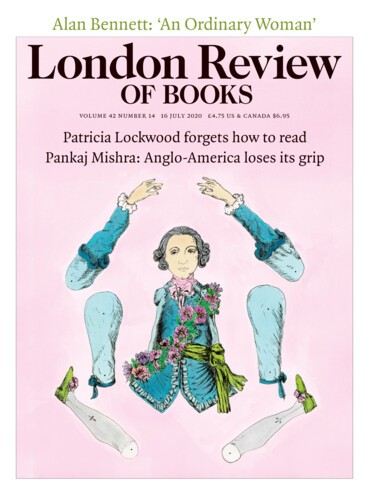It was a fortnight before le couple coiffure turned up for the high season.
A small flat her tante in Paris owned and let to the couple every year,
and for many years. They were not young. Mlle’s discomfort was evident
from the moment they stepped off the bus that night, as if she found him
unworthy somehow of such a gift as a free flat in St Tropez, or her, or both,
or perhaps a general peevishness had seeped in during the long journey down.
Famous now, a matron, whose name conjures hopes or fears, buoys
or stifles careers, but then not much more than a child, one who already knew
large success awaited, or what she counted success, and had abandoned him,
nor recently, if it had ever really taken notice. Still, she loved him,
in her own fashion, if often querulously or diluted by suspicion.
But her French was perfection, thus bestowing on him a kind of invisibility,
his preferred mode. It would remain so and over time only intensify
until he came to resemble a decommissioned spy or some Burroughs character,
one of his old grey junkies in rumpled gabardine and wearing a fedora.
There was little to occupy the two of them, really: read, stroll, make love,
shop at the little open market below their balcony in the old quarter
where a tolerable bleu Auvergne could be found dirt cheap and made
for a lovely sauce or dressing. Their Baedeker was that torrid Salter novel
with Philip and Anne-Marie whipping up a froth in Burgundy’s grand old hotels,
roaring down two lane country roads in a vintage Delage, top down,
café to café, bar to bar, meal to meal, bed to bed, hurtling aimlessly
through a spring and summer at speed under canopies of plane trees
until … well … One knew it was destined to end, and very badly.
He, for his part, mostly hid in the old chapel-turned-museum, L’Annonciade,
beholding what Dufy, especially Dufy, Camoin, Monguin, Marquet and that
crowd, did with the light, just after dawn and at end of day, sea light, and had
been, after Signac led the way. – When I realised each morning I would see this
light again I could not believe my luck, wrote Matisse. Though Mlle couldn’t be
bothered, with that light or any particular light to speak of or any artist’s
rendering.
Am I being unkind? Surely. Please forgive me. Whither Colette? With her cats
in that secluded garden, the great lady, no longer young (his age) suffering still
through those overmastering bouts of passion … – The cats will spring sideways at the
moths when by ten the air is blue as a morning glory. – After dinner, Sidonie-
Gabrielle wrote – I mustn’t forget to irrigate the little runnels that surround the
melons, and to water by hand the balsam, phlox and dahlias and the young
tangerine trees, which haven’t got roots yet long enough to drink …
Then we have the youthful Agnelli, only recently back from the Front
(Can you imagine: spoiled, pretty Gianni on the Eastern Front?), vibrating
like a tuning fork from all the cocaine, while he snorkeled his heart away off shore,
sending up a multitude of bubbles between the legs of all those Ginas,
Moniques and Yvettes. Of course, these were the early days, before the big crash
along the corniche, the long convalescence and then the triumphs:
Fiat’s Avocado, the ‘King of Italy’, his Patek Philippe worn half way up his sleeve
and his dick up Jackie O below deck. How she thrived on the open sea, that one.
And then, in their wake: hustlers, deadbeats, remittance men, le couple coiffure,
tyro cineastes, package tours from Sheffield and Dusseldorf, 374 bad novelists
and, bringing up the rear, our two curiously feathered American love birds,
out of tune, out of sorts, out of place and fifty years late.
Send Letters To:
The Editor
London Review of Books,
28 Little Russell Street
London, WC1A 2HN
letters@lrb.co.uk
Please include name, address, and a telephone number.

